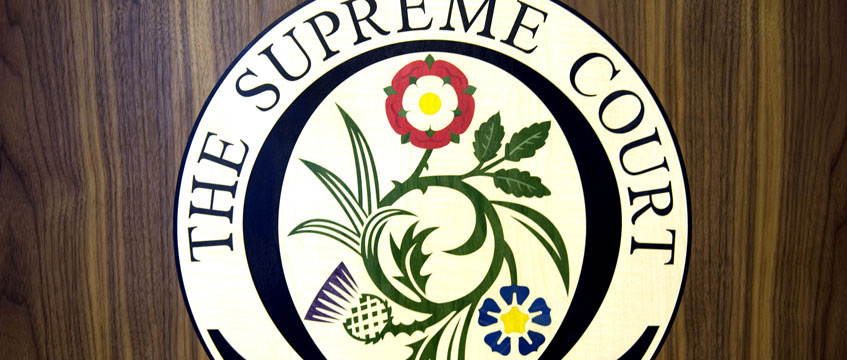Supreme Court backs FCA and policyholders in business interruption test case
The Supreme Court backed the regulator and insurance policyholders in a high-profile dispute between the Financial Conduct Authority and the insurance industry over business interruption insurance during the coronavirus pandemic.
The ruling means that thousands of policyholders are likely to get a payout from their insurance companies for losses during the national lockdown last year.
“Coronavirus is causing substantial loss and distress to businesses and many are under immense financial strain to stay afloat,” said Sheldon Mills, executive director of consumers and competition at the FCA.
The Supreme Court backed the regulator and insurance policyholders in a high-profile dispute between the Financial Conduct Authority and the insurance industry over business interruption insurance during the coronavirus pandemic.
The ruling means that thousands of policyholders are likely to get a payout from their insurance companies for losses during the national lockdown last year.
“Coronavirus is causing substantial loss and distress to businesses and many are under immense financial strain to stay afloat,” said Sheldon Mills, executive director of consumers and competition at the FCA.
“Today’s judgment decisively removes many of the roadblocks to claims by policyholders,” he said.
Giving judgment today, Supreme Court judge Lord Hamblen said the court had “substantially allowed” the appeals of the FCA and the Hiscox Action Group, which represents customers of insurers Hiscox. He said the court has “substantially dismissed” the arguments of the insurance industry.
The urgent litigation has had a fast journey through the courts, as it involves around 370,000 policyholders who, because of complicated wording, are unsure whether they are entitled to make a claim for business interruption owing to Covid-19. This has meant that thousands of claims have been put on hold while the case goes through the courts.
The regulator and the insurance industry have been seeking guidance from the court on the specific interpretation of the wording of key policies.
It is “probably the most important insurance decision of the last decade”, according to the FCA. Following a High Court decision in September, it was fast-tracked straight to the Supreme Court, where an appeal was heard in November.
The rulings in both the Supreme Court and High Court are detailed and specific.
The 162-page High Court judgment did not expressly come down on one side or the other. Instead, it goes through the wordings brought up at the trial and provides specific guidance to help the industry decide which customers have valid claims.
However, the High Court backed the arguments brought by lawyers representing policyholders and the FCA in “the majority of key issues”, which gave rise to the appeal from the insurance industry.
The FCA was not completely satisfied with the ruling. It said that “it was not successful on all points” and is seeking to appeal four “inconsistencies and errors” in the judgment that “provide substantial obstacles to indemnity for a large number of insureds”.
Huw Evans, the director general of the Association of British Insurers, said that the judgment will bring “clarity” to a complicated issue.
“Insurers have supported this fast-track legal process every step of the way and we welcome the clarity that the judgment will bring to a number of complex issues. Today’s judgment represents the final step in the appeal process,” said Evans.
He said that all valid claims will be settled as soon as possible and policyholders who have made claims affected by the test case will be contacted by their insurer to discuss what the judgment means for their claim.
Evans said that the insurance industry has already paid out more than £1.8bn in Covid-related claims and has paid out on some business interruption insurance polices.
“We recognise this has been a particularly difficult time for many small businesses and naturally regret that Covid-19 restrictions have led to disputes with some customers,” he said. “We will continue to work together as an industry to ensure customers have the clarity they need when it comes to what they can expect from their business insurance policies.”
Alison Hardy, a partner at Ashurst, said that policyholders’ circumstances are very important.
“Small businesses have been given a lifeline, with landlords and tenants in particular encouraged by the result of this judgment.
“However, every insurance policy will turn on the particular wording, so landlords, tenants and insurers should closely scrutinise the wording of their particular business interruption and/or loss of rent policies to see whether that policy will respond,” she said.
The insurers appealing are Arch Insurance (UK), Argenta Syndicate Management, MS Amlin Underwriting, Hiscox, QBE UK, Royal & Sun Alliance and Zurich.
Financial Conduct Authority v Arch Insurance Ltd and others [2021] UKSC 1; [2021] EGLR 12
Supreme Court (Lord Reed (president), Lord Hodge (deputy president), Lord Briggs, Lord Hamblen and Lord Leggatt) 15 January 2021
LISTEN: On the Case: What the FCA decision means for tenants, landlords and insurers
Photo: Shutterstock











